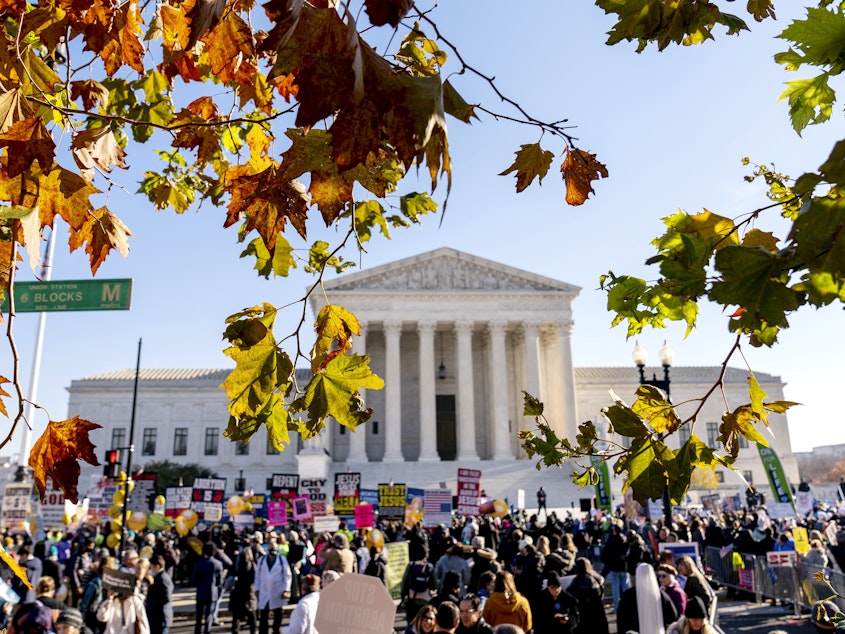Roe v. Wade's future is in doubt after historic arguments at Supreme Court

The right to an abortion in the United States appeared to be on shaky ground as a divided Supreme Court heard arguments Wednesday on the fate of Roe v. Wade, the court's 1973 decision that legalized abortion in the United States.
At issue in Wednesday's case — Dobbs v. Jackson Women's Health Organization — was a Mississippi law that bans abortion after 15 weeks. Until now, all the court's abortion decisions have upheld Roe's central framework — that women have a constitutional right to an abortion in the first two trimesters of pregnancy, when a fetus is unable to survive outside the womb, roughly between 22 and 24 weeks. But Mississippi asked the Supreme Court to reverse all of its prior abortion decisions and to return the abortion question to the states.
The court's three newest justices, Neil Gorsuch, Brett Kavanaugh and Amy Coney Barrett, appeared to signal they are ready to side with Mississippi — but it wasn't immediately clear if all of them would strike down Roe, as the state of Mississippi had asked.
Summarizing Mississippi's argument, Justice Kavanaugh said: "They say the Constitution doesn't give us the authority, we should leave it to the states and we should be scrupulously neutral."
Chief Justice John Roberts, a fellow conservative, focused on the argument of fetal viability.
Sponsored
"Why would 15 weeks be an inappropriate line? Viability, it seems to me, doesn't have anything to do with choice, but if it really is an issue about choice, why is 15 weeks not enough time?" he asked Julie Rikelman, who represented the abortion clinic bringing the case.
Rikelman replied: "If the court were to move the line substantially backwards and 15 weeks is 9 weeks before viability, your honor, it may need to reconsider the rules around regulations because if it's cutting the time period to obtain an abortion roughly in half, then those barriers are going to be much more important."
The court's liberals suggested overturning Roe would make the court appear political.
"Will this institution survive the stench that this creates in the public perception that the constitution and its reading are just political acts?" Justice Sonia Sotomayor asked Mississippi Solicitor General Scott Stewart.
A decision in the case is expected by summer. [Copyright 2021 NPR]



